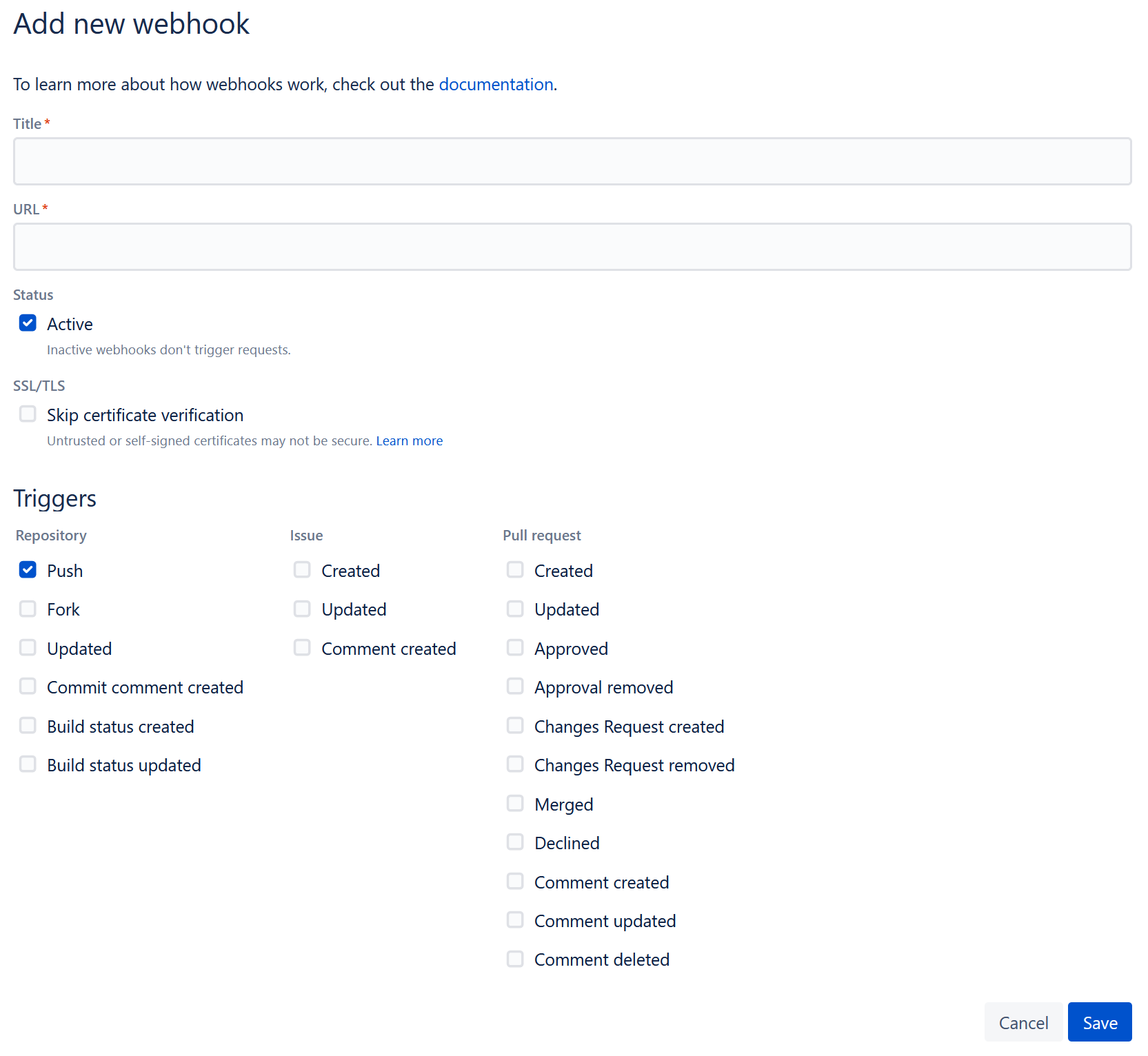Webhooks are user-defined HTTP callbacks, which can be maintained, modified and managed by any third-party users, in order to cause events on one site to invoke behavior on another.
Webhooks can be called from anywhere. They can be added in a Bitbucket repo's settings, to extend what Bitbucket does when the repository changes (for example, new code is pushed or a pull request is merged).
When the webhook is triggered, the assigned languages/projects on POEditor receive data from the Bitbucket file that is connected to it.
How to use webhooks with the Bitbucket integration
In the Bitbucket integration page, you can find a webhook generator, where you can choose the desired action(s) for your webhook.
If a link in the integration page has any settings specified, they will also be applied when its corresponding webhook is triggered.
After creating a webhook, you can add it to Bitbucket in Repository settings > Webhooks.
Linking multiple files to a language
You can connect multiple files to the same language by creating a link for each of these files. If you want to run an operation for all the linked files via webhooks, you need to create a webhook with this operation and run it for each of the linked files.
We strongly recommend that you do not use the sync webhook if you have multiple files linked to the source language. The sync webhook deletes the terms which are in the project, but are not in the connected file. So you may end up losing terms you imported from other files. The terms from the file last synced is what remains in your POEditor project.
The export option can be triggered from anywhere, except Bitbucket.
How to create webhooks for workflows
You can use webhooks to trigger workflows from your Bitbucket repositories. To do so, access the project page, select Workflows, then the workflow name, and finally Create webhooks.

